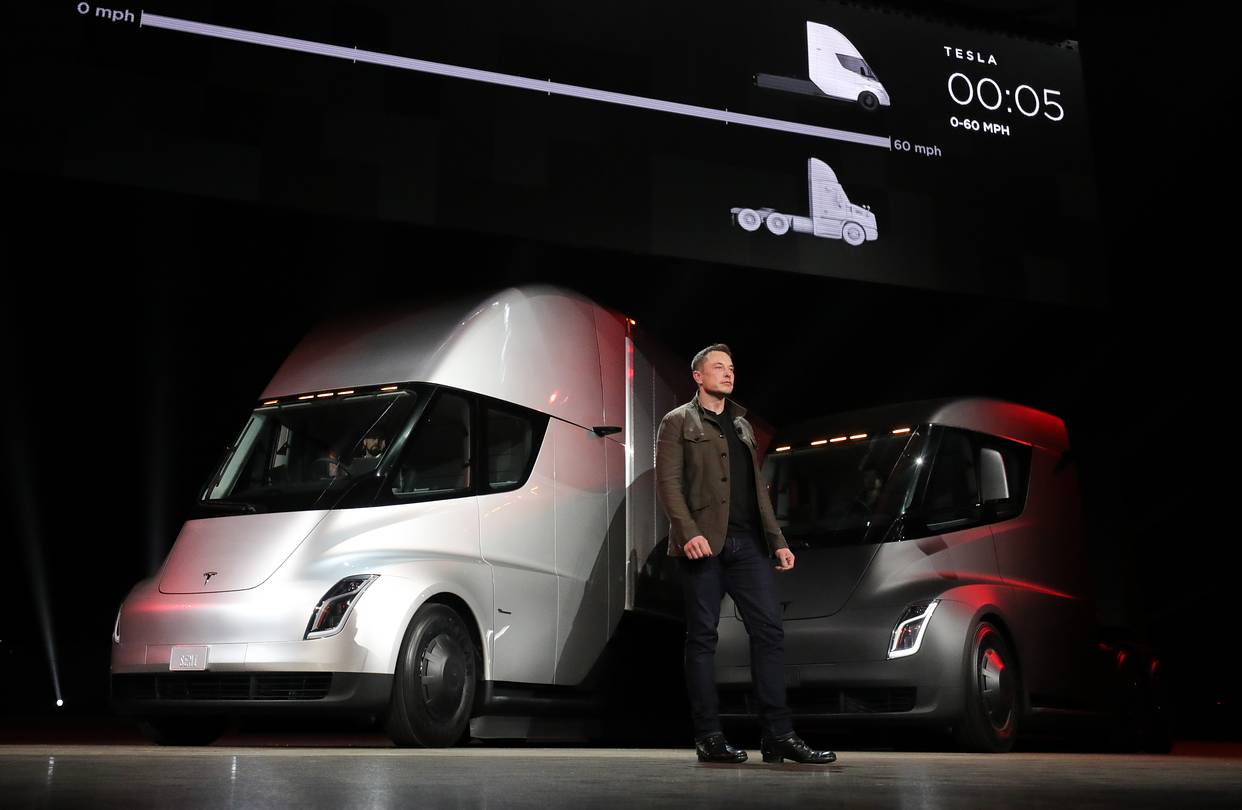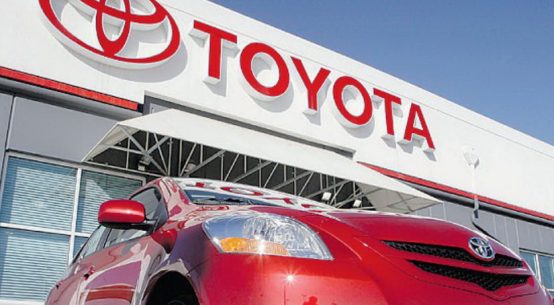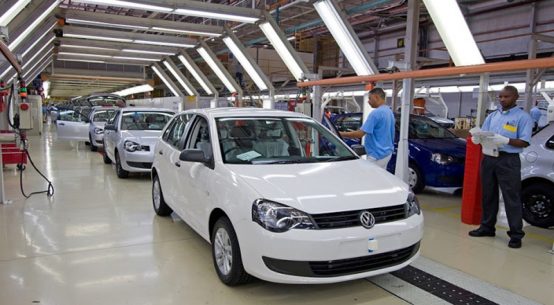Tesla Inc. CEO Elon Musk introduced the Semi-electric truck on Thursday.
Some of the country’s biggest trucking fleets are among Tesla Inc.’s first customers for its all-electric big rig.
J.B. Hunt Transport Services Inc. and Wal-Mart Stores Inc., which operate thousands of trucks, said Friday they had reserved Tesla’s truck, which Chief Executive Elon Musk revealed at an event in Hawthorne, Calif., on Thursday. The first highway-ready vehicles aren’t due out until 2019, but the company is taking $5,000 deposits.
Imagine your Ad placed here
The Semi is designed to run up to 500 miles on a single charge and incorporates Tesla’s semiautonomous driving system, which the company said could allow big rigs to travel in autonomous convoys with other of its trucks. The company did not provide a sticker price but said the truck would be cheaper to operate than diesel rivals and could potentially cost less than transport by rail.

Wal-Mart has preordered five units for the U.S. and 10 for its Canadian division, and sees the potential for the trucks to help meet company targets for lower emissions, a spokesman said Friday. The order was reported earlier by CNBC.
The company has one of the largest private fleets in the U.S., with some 6,000 trucks. Wal-Mart has tested other new vehicle technology, including diesel-electric hybrid trucks and some that run on liquefied natural gas or other alternative fuels.
J.B. Hunt, a leading U.S. carrier, said Friday it “placed a reservation to purchase multiple Tesla Semi tractors,” but declined to specify how many units it ordered. The vehicles will support West Coast operations of J.B. Hunt’s intermodal unit, where freight is moved long distance by road and rail, and its dedicated contract division, which provides trucking services for companies that have outsourced their private fleet operations.
The electric vehicles will be most useful on local routes, J.B. Hunt Chief Executive John Roberts said in a statement.
The Semi’s 500-mile range on a single charge exceeds what some analysts had expected but could still limit its use on long-haul routes, at least until a nationwide network of charging stations is built. The battery’s weight could also be an issue, as heavier trucks can carry less freight. “As presented it is hard to argue that the Tesla semi … can do anything a diesel truck can do,” Bernstein analysts said in a research note.
Tesla says it is planning to build a global network of “megachargers” where truckers could recharge vehicles in about 30 minutes, gaining another 400 miles of range.
Other companies are working on electric trucks, including medium-duty and delivery vehicles. Engine maker Cummins Inc., which unveiled an electric powertrain with a 100-mile range earlier this year, has said “there’s just no case today” for electric long-haul trucks, citing the battery weight. The company’s shares were down 4% Friday.
In the meantime, fleets that move cargo thousands of miles across the country may be less eager to test the Semis out.
“The limited 500-mile range of the Tesla truck hinders our ability to be an early adopter,” Greg Hirsch, a senior vice president at trucking company Daseke Inc., said in an email. The company specializes in hauling oversize industrial equipment and materials, often over long distances. “There will need to be an over-the-road infrastructure put into place prior to us being able take advantage of this technology.
With reports from Reuters










